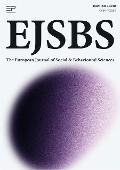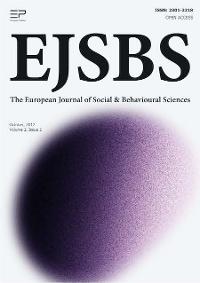Abstract
People are often moved by external factors such as reward system, grades, evaluations, or opinions they fear others might have of them. Yet just as frequently, people are from within, by interests, curiosity, care or abiding values, these intrinsic motivations are not necessarily externally rewarded or supported, but nonetheless they can sustain passions, creativity and sustained efforts, the purpose of this study is tested Iraq's talented student about Which is type of self-determination there are selected the 100 talented students’ sample in Diyala province, Method research will be deepened on paper and pencil through self-determination scale. So, the data would process statistically to extraction results.
Keywords: Self-determination, intrinsic motivation, Iraqi students, extrinsic motivation
Introduction: Self-determination overview
The conceptual development of SDT standard off with the empirical examination of the interplay between intrinsic and extrinsic motivation, subsequent research provided the impulse for a more refined view in which different types of extrinsic motivation are expected to yielded different relations with employees, optimal functioning, Intrinsic motivation and the different types of extrinsic motivation all concern particular reasons for engaging in activities or behavioral regulations, within SDT, they are therefore referred to as the "WHY" of behavior (Deci & Ryan, 2000).
Statement: The Significance
Throughout the United States, there has been a call for American's students to master more complex skills and to demonstrate understanding of more sophisticated content, In response, states throughout the country have increased their expectations for student performance, however, while basic competencies are being raised, often there is little done to enhance services for more advanced learners, National Excellence: A case for Developing America's Talent, published by the United States Department of Education in 1993, notes that most American students are Encouraged to finish high school and earn good grades, but students are not asked to work hard or master a body of challenging knowledge or skills to students is to aim for academic adequacy, not academic excel.
Purpose of the Study
Self-Determination Theory (SDT) represents a broad framework for the study of human motivation and personality. SDT articulates a meta-theory for framing motivational studies, a formal theory that defines intrinsic and varied extrinsic sources of motivation, and a description of the respective roles of intrinsic and types of extrinsic motivation in cognitive and social development and in individual differences. Perhaps more importantly SDT propositions also focus on how social and cultural factors facilitate or undermine people’s sense of volition and initiative, in addition to their well- being and the quality of their performance. Conditions supporting the individual’s experience of autonomy, competence, and relatedness are argued to foster the most volitional and high quality forms of motivation and engagement for activities, including enhanced performance, persistence, and creativity. In addition, SDT proposes that the degree to which any of these three psychological needs is unsupported or thwarted within a social context will have a robust detrimental impact on wellness in that setting.
The dynamics of psychological need support and need thwarting have been studied within families, classrooms, teams, organizations, clinics, and cultures using specific propositions detailed within SDT. The SDT framework thus has both broad and behavior-specific implications for understanding practices and structures that enhance versus diminish need satisfaction and the full functioning that follows from it. These many implications are best revealed by the varied papers listed on this website, which range from basic research on motivational micro-processes to applied clinical trials aiming at population outcomes.
Research Methods
In this study 100 talented students were selected, these sample represent all the population for talented student in five private schools in Iraq, and used Self-determination scale which developed by Ryan (2009), So to modify this scale to Iraq's student It had been translate from English to Arabic language by Professional Interpreters.
Findings
After scoring the Average of sample was more than Average of society, that is mean the self-determination for student is exist 65 > 60, and the standard deviation 7.293 the t-test was 14.814. It compared with standard values (1.98) on level (0.05) there is a significant difference for mean sample.
Conclusion
According to the results the talented Iraq's student have good level with self-determination, this is due to the student have a skills above the average with them peers, the good socialization another reason because there family high educated.
Acknowledgements
The authors declare that there is no conflict of interest.
References
Ryan, R. (2009). Self‐determination Theory and Wellbeing. Wellbeing in developing Countries. http://www.bath.ac.uk/soc-pol/welldev/wed-new/network/research-review/Review_1_Ryan.pdf
Ryan, R. M., & Deci, E. L. (2000). Self-determination theory and the facilitation of intrinsic motivation. American psychologist.
Copyright information

This work is licensed under a Creative Commons Attribution-NonCommercial-NoDerivatives 4.0 International License.


